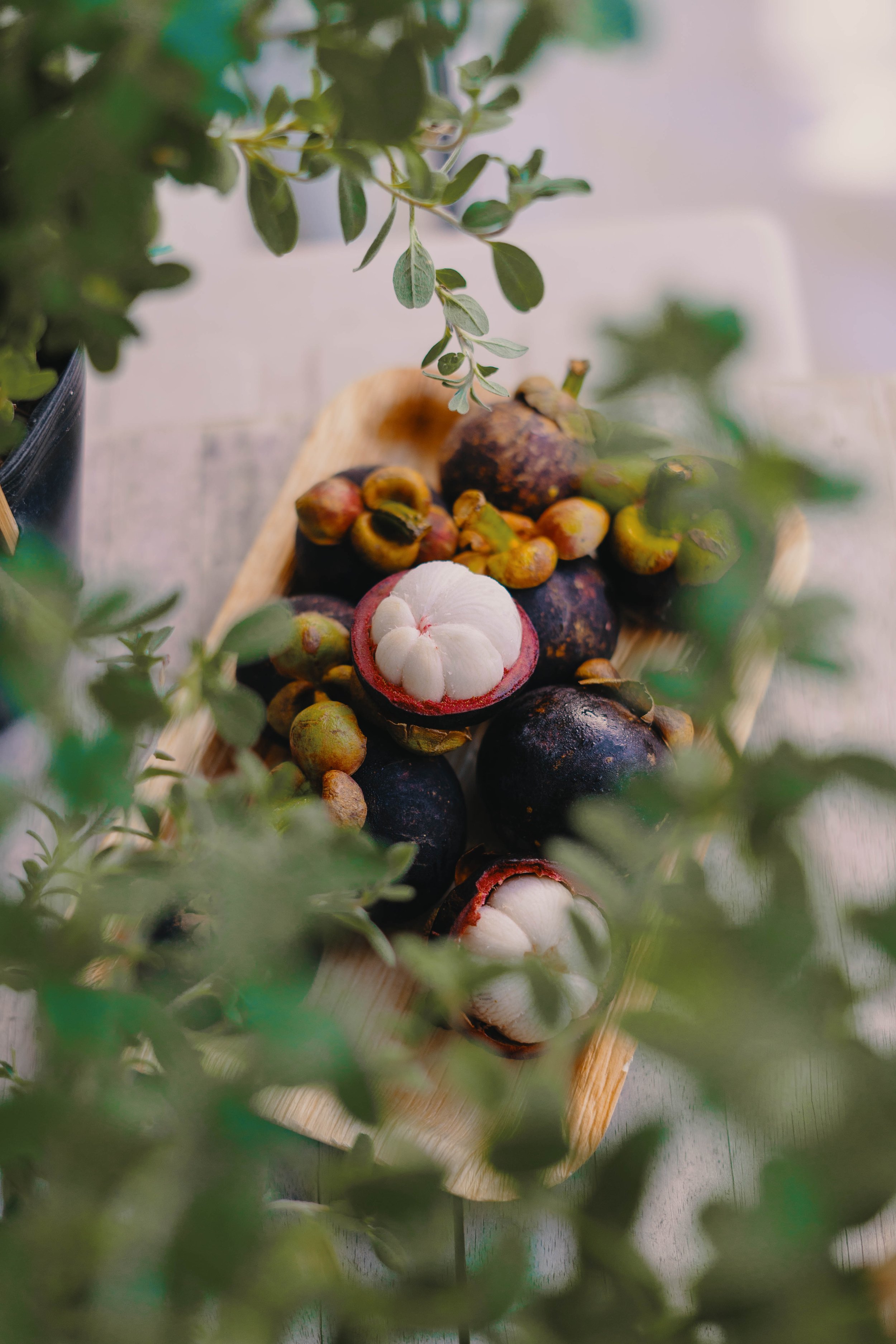 Image 1 of 2
Image 1 of 2

 Image 2 of 2
Image 2 of 2

Mangosteen
Mangosteen is a small and exquisite ultra-tropical fruit with very juicy, sweet/sour flesh. Not related to mangoes, mangosteen texture and taste are unique (between custard apple, pineapple and peach).
The xanthones found in mangosteen may play a role in reducing inflammation. Studies indicate that it might helps prevent mental decline and decrease brain inflammation. The vitamins and minerals in mangosteen are important for maintaining many bodily functions, including DNA production, muscle contraction, wound healing, immunity and nerve signalling.
Store the mangosteens up to 10 days in dry, warm, closed storage.
In season April to August
Mangosteen is a small and exquisite ultra-tropical fruit with very juicy, sweet/sour flesh. Not related to mangoes, mangosteen texture and taste are unique (between custard apple, pineapple and peach).
The xanthones found in mangosteen may play a role in reducing inflammation. Studies indicate that it might helps prevent mental decline and decrease brain inflammation. The vitamins and minerals in mangosteen are important for maintaining many bodily functions, including DNA production, muscle contraction, wound healing, immunity and nerve signalling.
Store the mangosteens up to 10 days in dry, warm, closed storage.
In season April to August
Mangosteen is a small and exquisite ultra-tropical fruit with very juicy, sweet/sour flesh. Not related to mangoes, mangosteen texture and taste are unique (between custard apple, pineapple and peach).
The xanthones found in mangosteen may play a role in reducing inflammation. Studies indicate that it might helps prevent mental decline and decrease brain inflammation. The vitamins and minerals in mangosteen are important for maintaining many bodily functions, including DNA production, muscle contraction, wound healing, immunity and nerve signalling.
Store the mangosteens up to 10 days in dry, warm, closed storage.
In season April to August

Health tip
The leaves and bark of mangosteen are recognised to have strong anti-inflammatory, antibacterial properties and powerful antioxidant ; Ointment derived from them is used for treating skin disorders such as eczema, psoriasis, hyperkeratosis and wounds.
The leathery deep colour enveloping the fruit is not edible but you can brew a few teaspoons of mangosteen peel extract with warm water, honey or agave syrup to enjoy its properties.
